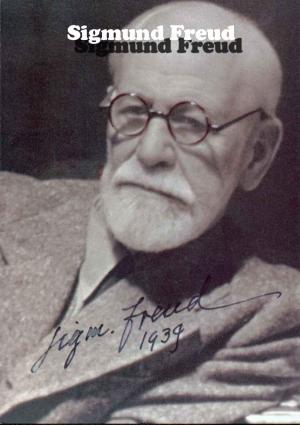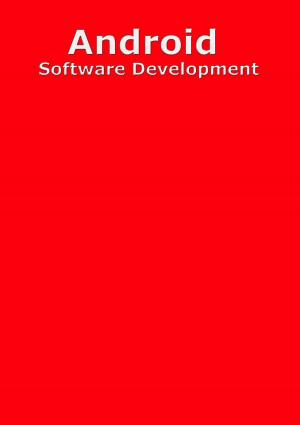Methodological Orientation
Theses on Marx, Pierre Bourdieu and Michel Foucault
Nonfiction, Reference & Language, Law, Educational Law & Legislation, Biography & Memoir, Philosophers, Political| Author: | Heinz Duthel | ISBN: | 1230000128218 |
| Publisher: | Heinz Duthel | Publication: | April 26, 2013 |
| Imprint: | Language: | English |
| Author: | Heinz Duthel |
| ISBN: | 1230000128218 |
| Publisher: | Heinz Duthel |
| Publication: | April 26, 2013 |
| Imprint: | |
| Language: | English |
* What are the sources of mathematical subject matter?
* What is the ontological status of mathematical entities?
* What does it mean to refer to a mathematical object?
* What is the character of a mathematical proposition?
* What is the relation between logic and mathematics?
* What is the role of hermeneutics in mathematics?
* What kinds of inquiry play a role in mathematics?
* What are the objectives of mathematical inquiry?
* What gives mathematics its hold on experience?
* What are the human traits behind mathematics?
* What is mathematical beauty?
* What is the source and nature of mathematical truth?
* What is the relationship between the abstract world of mathematics and the material universe?
Additionally, some understand the term mathematical philosophy to be an allusion to the approach taken by Bertrand Russell in his book Introduction to Mathematical Philosophy.
* Axiomatic set theory
* Axiomatic system
* Category theory
* Formal language
* Formal system
* Foundations of mathematics
* Golden ratio
* History of mathematics
* Intuitionist logic
* Logic
* Mathematical beauty
* Mathematical constructivism
* Mathematical logic
* Mathematical proof
* Metamathematics
* Model theory
* Naive set theory
* Non-standard analysis
* Philosophy of language
* Philosophy of science
* Philosophy of probability
* Proof theory
* Rule of inference
* Science studies
* Scientific method
* Set theory
* Truth
* The Unreasonable Effectiveness of Mathematics in the Natural Sciences
So, what might mathematics look like if it served to combat social discrimination? Walter Secada gives us some indication of what it ought to include.
Mathematics would be used to solve problems either of the workplace or of the larger society. In contrast, authors who are concerned about equity might propose uses of mathematics that are based on analysing the social arrangements that undergird these social problems and on critiquing them according to notions of social justice.
[Secada, 1989 #65, p 46]
But
the development of curriculum, and hence the selection of those contexts, is and is likely to remain controlled by a predominantly white, male, and middle-class group. . . Unless the mathematics curriculum includes real contexts that reflect the lived realities of people who are members of equity groups and unless those contexts are rich in the sorts of mathematics which can be drawn from them, we are likely to stereotype mathematics as knowledge that belongs to a few privileged groups.
[Secada, 1989 #65, p 49]
Walter Secada suggests one reason for the exclusiveness of mathematics is that we may have just accepted the status quo as the way things naturally have to be [Secada, 1989 #65, p 49]. Exploring social class as a discriminator is more difficult than other discriminators (such as race, gender and ethnicity). Where individuals share some self-identity with others in similar ethnic, racial and gender groups, there is less evidence of this in socio-economic groups. Walter Secada points to a lack of examples of this in the research literature [Secada, 1989 #65]. There may be many reasons why this is so:
Moreover, social class does not seem to be as salient a characteristic of students as their race, ethnicity, gender, or language background. Indeed students themselves may not be aware of social class in the same way that they are of these other characteristics.
[Secada, 1992 #312, p 640]
* What are the sources of mathematical subject matter?
* What is the ontological status of mathematical entities?
* What does it mean to refer to a mathematical object?
* What is the character of a mathematical proposition?
* What is the relation between logic and mathematics?
* What is the role of hermeneutics in mathematics?
* What kinds of inquiry play a role in mathematics?
* What are the objectives of mathematical inquiry?
* What gives mathematics its hold on experience?
* What are the human traits behind mathematics?
* What is mathematical beauty?
* What is the source and nature of mathematical truth?
* What is the relationship between the abstract world of mathematics and the material universe?
Additionally, some understand the term mathematical philosophy to be an allusion to the approach taken by Bertrand Russell in his book Introduction to Mathematical Philosophy.
* Axiomatic set theory
* Axiomatic system
* Category theory
* Formal language
* Formal system
* Foundations of mathematics
* Golden ratio
* History of mathematics
* Intuitionist logic
* Logic
* Mathematical beauty
* Mathematical constructivism
* Mathematical logic
* Mathematical proof
* Metamathematics
* Model theory
* Naive set theory
* Non-standard analysis
* Philosophy of language
* Philosophy of science
* Philosophy of probability
* Proof theory
* Rule of inference
* Science studies
* Scientific method
* Set theory
* Truth
* The Unreasonable Effectiveness of Mathematics in the Natural Sciences
So, what might mathematics look like if it served to combat social discrimination? Walter Secada gives us some indication of what it ought to include.
Mathematics would be used to solve problems either of the workplace or of the larger society. In contrast, authors who are concerned about equity might propose uses of mathematics that are based on analysing the social arrangements that undergird these social problems and on critiquing them according to notions of social justice.
[Secada, 1989 #65, p 46]
But
the development of curriculum, and hence the selection of those contexts, is and is likely to remain controlled by a predominantly white, male, and middle-class group. . . Unless the mathematics curriculum includes real contexts that reflect the lived realities of people who are members of equity groups and unless those contexts are rich in the sorts of mathematics which can be drawn from them, we are likely to stereotype mathematics as knowledge that belongs to a few privileged groups.
[Secada, 1989 #65, p 49]
Walter Secada suggests one reason for the exclusiveness of mathematics is that we may have just accepted the status quo as the way things naturally have to be [Secada, 1989 #65, p 49]. Exploring social class as a discriminator is more difficult than other discriminators (such as race, gender and ethnicity). Where individuals share some self-identity with others in similar ethnic, racial and gender groups, there is less evidence of this in socio-economic groups. Walter Secada points to a lack of examples of this in the research literature [Secada, 1989 #65]. There may be many reasons why this is so:
Moreover, social class does not seem to be as salient a characteristic of students as their race, ethnicity, gender, or language background. Indeed students themselves may not be aware of social class in the same way that they are of these other characteristics.
[Secada, 1992 #312, p 640]















